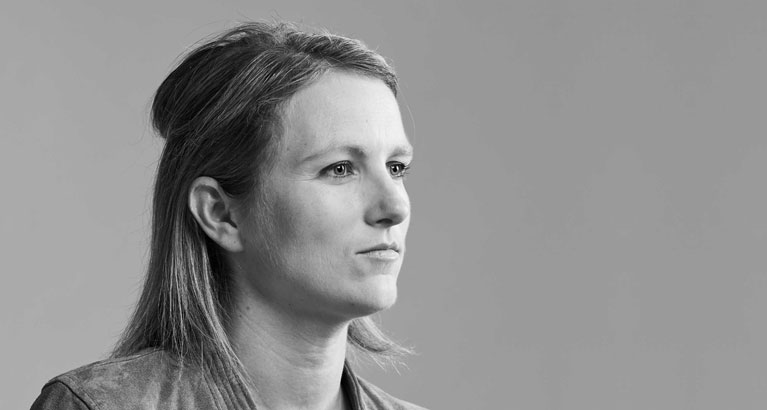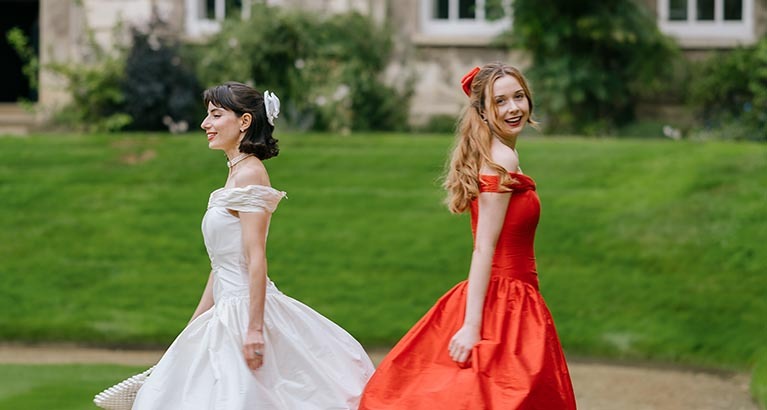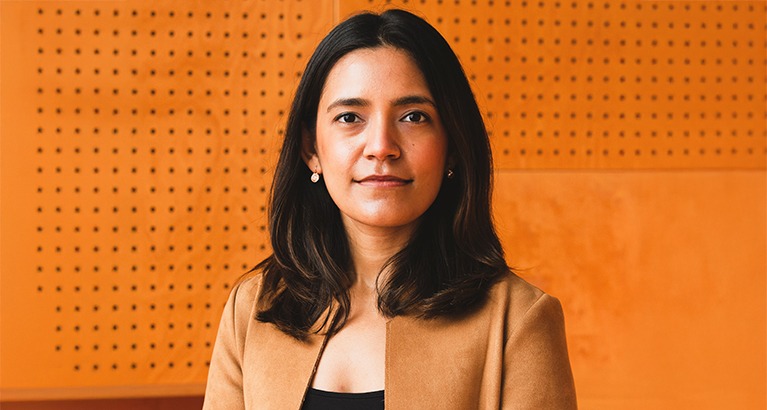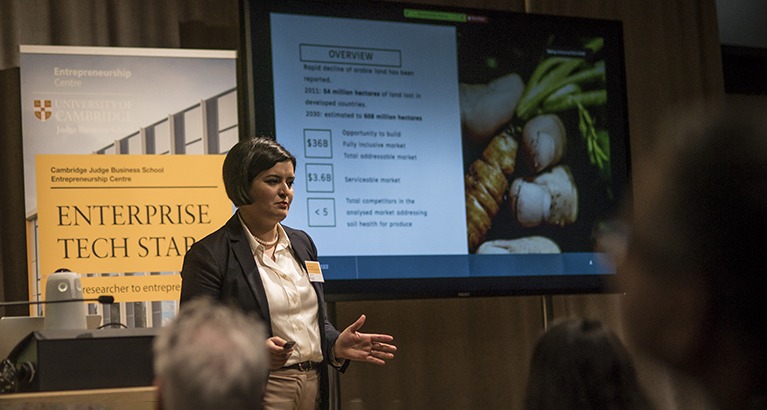An unconventional career path: from humanities to business intelligence
A humanities and linguistics major, Kate Scott-Dawkins (MBA 2011) is now Global President of Business Intelligence at GroupM. She spends most of her day working in Excel with financial models and forecasts. And she loves it. “It’s fun maths. It’s puzzles and detective work and thinking about the future and applying all of that to being really creative.”
It’s certainly not somewhere that her younger self would have imagined her being in the future. With little interest in maths in high school, her ambition was to work in the international creative and advertising field. After a short detour doing professional sports (Kate was an archer and lived at the Olympic Training Centre in San Diego, California for several years), she entered the working world and was quickly offered the amazing opportunity to work in Hong Kong for a time. Soon after that, she was asked to run the Hong Kong office. She admits to feeling “very green”. Faced with running a P&L for the first time, she realised she needed to increase her business acumen to truly excel at this or any future role. She turned down the Hong Kong job and decided to study for an MBA at Cambridge Judge. She hasn’t looked back.
The skills acquired during the Cambridge MBA enabled Kate to transition to her current role at GroupM. After completing her MBA, she worked in corporate strategy and corporate development within the advertising industry before connecting with her now former boss who ran forecasting at GroupM, the world’s largest media investment company. Kate fell in love with “the analysis involved, the critical thinking” that are integral to forecasting. The skills she honed during her MBA – financial modelling, analysing a 10-K – have enabled her to take over leadership of forecasting at GroupM and parlay that expertise into concrete recommendations for clients.
A growth mindset, essential for young women in STEM
Having had an unconventional career path in terms of where she started out and where she is now, Kate is passionate about opportunities for women in STEM and the importance of promoting a growth mindset in young girls. She’s a firm believer that “it’s never too early to start talking about the opportunities that are open to young people and how important it is to get a good education and continue to work at things.” She advises young girls to absorb as much information and experience as possible and take some time to really understand the full breadth of what’s open to them. She continues, “Have a very wide aperture at the start of life and realise that you can narrow that down over time, but you don’t need to do that today.”
Follow a real passion in undergrad. You can always pick up the business fundamentals later on. Start with a passion and figure out ways to apply that to any sort of role. You’ll be better for having the background in history or whichever subject it is that really excites you.
Busting the myth that careers in STEM are off-limits for women
Kate also stresses the importance of “trying to combat some of what girls see in popular culture”. Too often, she says, women in the public eye cite an “inability” to do maths as a blocker to pursuing a certain career path. She actively questions gender stereotypes with her two daughters, encouraging them to see beyond the often limited opportunities portrayed for women, and the myth that careers in STEM are off-limits for women. She rails against the belief that you must have an innate ability to do maths; it’s actually about having the right teachers and the right attitude. It’s about self-belief and the notion that accomplishment comes from perseverance as much as talent.
To encourage a growth mindset, young girls must see “people who look like them working in different creative and STEM careers, explaining how they got there, what they love about it, what a typical day looks like and what kind of an education is needed to be able to do these jobs”. This is necessary to counteract some of the media portrayals and ingrained ideas about women in, for example, engineering, maths, and creative careers.
This ties in with the work Kate has done around promoting diverse female role models in STEM-related jobs. She is a former board member of a nonprofit called Career Girls, whose mission it is for all girls to reach their full potential and discover their own path to empowerment through access to inspiring career role models and a supportive girl-centric curriculum. As Kate says, “it’s hard to be what you cannot see”. Kate currently serves on the advisory board of Career Girls, helping the organisation to scale its operations.
An advertising professional, Kate understands only too well the “power of the visual”.
There's a lot of power in media and advertising to inspire inclusion, for example, using diverse actors, whether they're disabled or from a minority background. The power of visual representation is important in so many different spheres. Creating new social norms by showing, for example, women in STEM can do a lot to really shift people's perception overall.
The Cambridge MBA
A one-year MBA degree from Cambridge Judge Business School, at the heart of the University of Cambridge.
Find our more about women and the Cambridge MBA
Introduce yourself to us to hear about admissions events and news from the MBA, register your interest with us.





